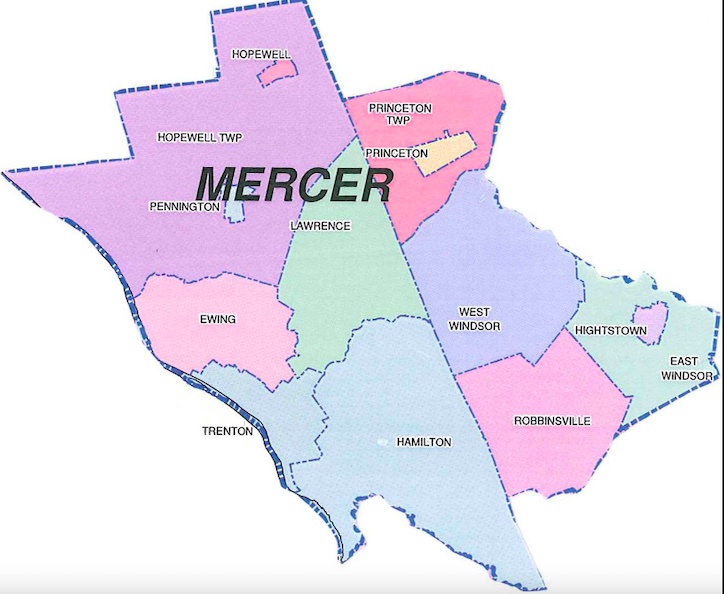A Legionnaires’ disease outbreak in Mercer County, NJ includes seven illnesses and two fatalities among residents served by Trenton Water Works, according to the New Jersey Department of Health. The illnesses occurred in Trenton, Ewing Township, Lawrence Township, and Hamilton Township between October 2022 and March 2023. This outbreak began immediately after a Legionnaires’ disease outbreak in Hamilton Township that sickened five people killing one of them between December 2021 and September 2022.
Legionnaires’ disease is a severe form of pneumonia that occurs when people inhale water mist that is contaminated with Legionella bacteria. It is not transmitted from person to person.

Would you like a free consultation about a Legionnaires’ disease illness or death?
People at Elevated Risk
Symptoms of Legionnaires’ disease, which include high fever, headaches, cough, shortness of breath, and muscle aches, usually appear within two to 14 days of exposure. Anyone who lives in Mercer County and develops these symptoms should seek medical care. Legionnaires’ disease can be treated with antibiotics, but cases often require hospitalization.
People who are at greater risk of contracting Legionnaires’ disease include:
- People over 50
- Current and former smokers
- People with chronic lung disease
- People with weakened immune systems
Health Department Recommendations for Reducing Risk of Exposure
State health officials are urging residents and building owners who get water from Trenton Water Works to follow these recommendations to reduce the risk of Legionella exposure.
How Residents Can Reduce the Risk of Legionella Exposure
- Avoid using hot tubs, power washers, or other activities that generate an increased amount of water mist.
- Follow manufacturers’ instructions for maintenance of home medical equipment. Often using sterile water rather than tap water is recommended.
- Follow manufacturers’ instructions to clean or replace showerheads and faucet aerators when buildup is visible.
- Set water heater to a minimum of 120˚F.
- After cleaning showerheads and faucets and adjusting the water temperature, flush the water at each tap for 20 minutes. Close the door when possible to reduce exposure during this process.
- Run sinks and showers that have not been used in a week or more for three minutes before using them.
- Clean and replace water filters.
- Detach and drain garden hoses.
- Follow manufacturers’ directions on how to clean hot tubs and decorative fountains.
How Building Owners Can Reduce the Risk of Legionella
- Use this health department worksheet to determine if your building needs a Water Management Program.
- Store hot water at temperatures above 140°F.
- Ensure circulating hot water does not fall below 120˚F.
- Using manufacturers’ recommendations, regularly clean and maintain all water system components such as mixing valves, aerators, showerheads, hoses, filters, water heaters, storage tanks, and expansion tanks.
- Flush all faucets, showers, and drinking fountains twice weekly.
- Remove dead legs from plumbing systems.
- Monitor water temperature, disinfectant concentration, and pH level regularly.
- Monitor and conduct regular maintenance on cooling towers.
What is Trenton Water Works Doing?
Trenton Water Works serves 200,000 residents in Trenton and portions of Ewing, Hamilton, Hopewell, and Lawrence. In October 2022, the New Jersey Department of Environmental Protection (NJDEP) was given operational oversight authority of Trenton Water Works through a Unilateral Administrative Order. The order was issued after decades of failure by Trenton Water Works to properly operate and maintain the water system.
These failures, some of which date back to 1976, include failure to “properly maintain critical treatment processes, monitor water
quality, employ adequately trained operating personnel, and invest in required maintenance and capital needs,” according to the order.
Since October 2022, NJDEP has been working with Trenton Water Works to improve conditions at the plant. In April 2023, the facility will conduct a low-velocity flushing program throughout its service area. This process “optimizes chlorine disinfection” while “restricting the hydrant flow to such levels that the sediment within the pipes is not disturbed or scoured.”
Customers will receive notification before flushing activities occur in their neighborhoods. “Customers on home dialysis should contact their kidney specialist to check if additional testing of water for chlorine residual, or any other measures, is required before use. Additionally, customers using tap water for aquariums should monitor the chlorine residual levels before use and treat as needed,” the health department stated in a press release.
Experienced Legionnaires’ Disease Lawyers
Pritzker Hageman Legionnaires’ disease attorneys have decades of experience representing clients with Legionnaires’ disease and families who have suffered the wrongful death of a loved one. To request a free consultation with our experienced Legionnaires’ Team, call us at 1(888) 377-8900 (toll-free), text 612-261-0856, or use the form below.